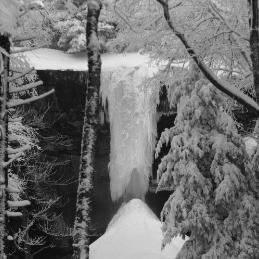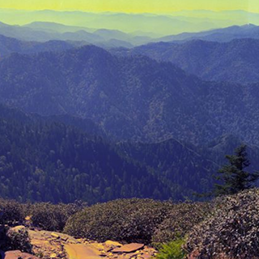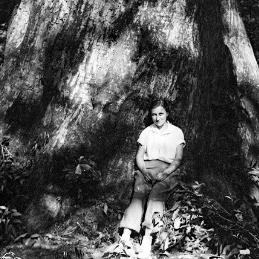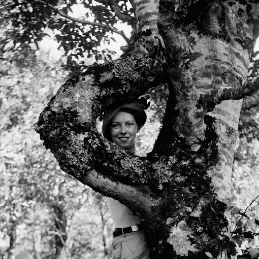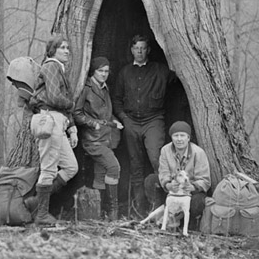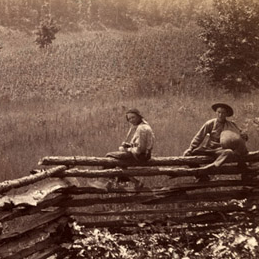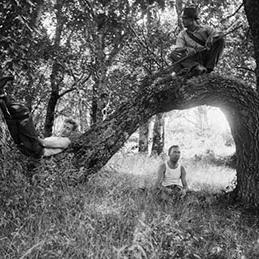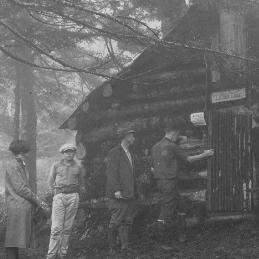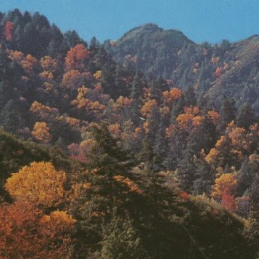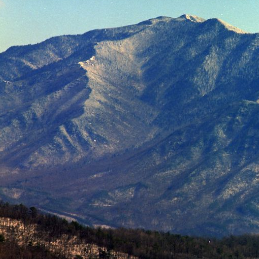Browse
Thematic Accuracy Assessment: Great Smoky Mountains National Park Vegetation Map. Great Smoky Mountains National Park, Gatlinburg, TN: National Park Service, 2007.
Predicting the Invasion of the Exotic Species Paulownia tomentosa Following Burning in Pine and Oak-Pine Forests of the Mountains In Joint Fire Science Project. Chapel Hill, NC: The University of North Carolina, 2006.
The Effect of Fire on Flowering Dogwood Stand Dynamics in Great Smoky Mountains National Park In General Technical Report. Asheville, NC: U.S. Department of Agriculture, Forest Service, Southern Research Station, 2006.
"Yellow pine regeneration as a function of fire severity and post-burn stand structure in the southern Appalachian Mountains." Forest Ecology and Management 262 (2011): 681-691.
"Woody Invaders and the Challenges They Pose to Forest Ecosystems in the Eastern United States." Journal of Forestry 104, no. 7 (2006): 366-374.
"Vegetative Legacy of a Protected Deer Herd in Cades Cove, Great Smoky Mountains National Park." Natrual Areas Journal 26, no. 2 (2006): 126-136.
"Vegetation Communities of Great Smoky Mountains National Park." Southeastern Naturalist 6, no. sp2 (2007): 35-56.
"Vegetation and Ecology of the ATBI Plots." ATBI Quarterly 2, no. 3 (2001): 6-7.
"Understory Composition of Five Tsuga canadensis Associated Forest Communities in Great Smoky Mountains National Park." Natural Areas Journal 32, no. 3 (2012): 260-269.
"Twenty Years of Forest Change in the Woodlots of Cades Cove, Great Smoky Mountains National Park." Journal of the Torrey Botanical Society 132, no. 2 (2005): 280-292.
"Spatial Patterning and Population Structure of a Common Woodland Herb, Trillium erectum, in Primary and Post-Logging Secondary Forests." Forest Ecology and Management 258, no. 11 (2009): 2569-2577.
"The Response of Understory Species Composition, Diversity, and Seedling Regeneration to Repeated Burning in Southern Appalachian Oak-Hickory Forests." Natural Areas Journal 29, no. 3 (2009): 255-262.
"The Relationship Between Fire History and an Exotic Fungal Disease in a Deciduous Forest." Oecologia 155, no. 2 (2008): 347-356.
"Relationship Between Cornus florida L. and Calcium Mineralization in Two Southern Appalachian Forest Types." Forest Ecology and Management 245, no. 1–3 (2007): 110-117.
"Regeneration responses to exogenous disturbance gradients in southern Appalachian Picea-Abies forests." Forest Ecology and Management 289 (2013): 98-105.
"Microbial community diversity and composition across a gradient of soil acidity in spruce-fir forests of the southern Appalachian Mountains." Applied Soil Ecology 61 (2012): 60-68.
"Long-Term Response of Spring Flora to Chronic Herbivory and Deer Exclusion in Great Smoky Mountains National Park, USA." Biological Conservation 125, no. 3 (2005): 297-307.
"Influence of Calcium, Potassium, and Magnesium on Cornus florida L. Density and Resistance to Dogwood Anthracnose." Plant and Soil 290, no. 1-2 (2006): 189-199.
"Impacts of an Exotic Disease and Vegetation Change on Foliar Calcium Cycling in Appalachian Forests." Ecological Applications 17, no. 3 (2007): 869-881.
"Impact of the Balsam Woolly Adelgid (Adelges piceae Ratz.) on an Abies fraseri (Pursh) Poir. Dominated Stand near the Summit of Mount LeConte, Tennessee." Castanea 68, no. 2 (2003): 109-118.
"High-elevation Ground-layer Plant Community Composition Across Environmental Gradients in Spruce-Fir Forests." Ecological Research 26, no. 6 (2011): 1089-1101.
"Herbaceous-Layer Impoverishment in a Post-Agricultural Southern Appalachian Landscape." American Midland Naturalist 162, no. 1 (2009): 148-168.
"Ground-layer Bryophyte Communities of Post-adelgid Picea-Abies Forests." Southeastern Naturalist 9, no. 3 (2010): 435-452.
"Evidence of Long and Discontinuous Juvenile Periods in Trillium catesbaei Under Contrasting Levels of Herbivory." Botany Published Online (2013).
"Elevational Gradients of Bryophyte Diversity, Life Forms, and Community Assemblage in the Southern Appalachian Mountains." Canadian Journal of Forest Research 40, no. 11 (2010): 2164-2174.

